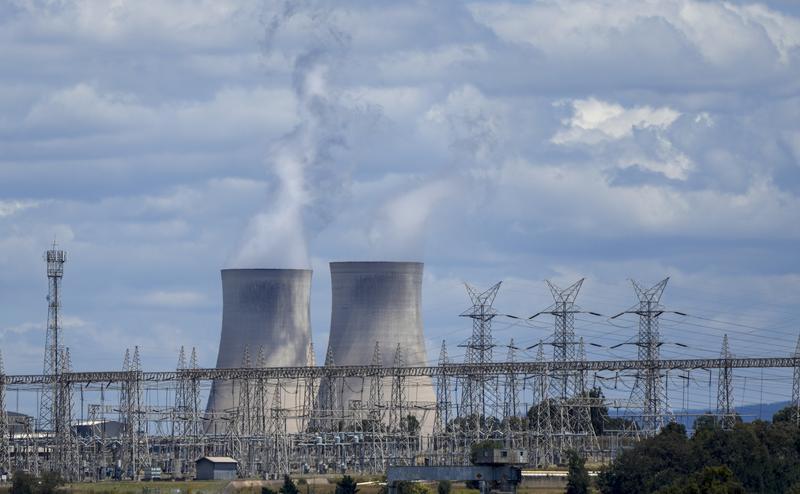 This file photo taken on Nov 2, 2021 shows Bayswater Power Station, a coal-powered thermal power station near Muswellbrook in the Hunter Valley, Australia. (PHOTO / AP)
This file photo taken on Nov 2, 2021 shows Bayswater Power Station, a coal-powered thermal power station near Muswellbrook in the Hunter Valley, Australia. (PHOTO / AP)
SYDNEY - New rules that cap total Australian greenhouse gas emissions and curb some new gas and coal investments in the country will come into effect on July 1 after parliament passed an upgraded emissions reduction plan on Thursday.
The "Safeguard Mechanism" reform legislation is key to the Labor government's pledge to cut emissions by 43 percent by 2030 in a country that ranks as one of the world's biggest carbon emitters per capita.
Labor inked a deal with the Greens Party on Monday to secure support for the legislation through the upper house Senate, where it passed on Thursday afternoon.
The legislation also requires all new gas projects in the Beetaloo Basin to have net zero carbon emissions and new gas fields supplying existing liquefied natural gas (LNG) plants to have net zero reservoir emissions, imposing new costs
Negotiations with the Greens, who wanted a ban on all new fossil fuel investments, resulted in a law including a hard total emissions cap, ministerial review for projects that raise total emissions and compulsory disclosures for polluters that rely heavily on carbon offsets to meet their targets.
READ MORE: Australia to pass energy price cap law with Greens' support
"Today is an historic day for the country to ensure our economy can take advantage of the opportunities of decarbonisation and meet our ambitious climate targets," Energy Minister Bowen said in a statement.
The plan aims to make about 215 oil, gas, mining and manufacturing facilities that annually emit more than 100,000 tonnes of carbon dioxide-equivalent (CO2-e) cut their emissions by 30 percent over the next seven years.
ALSO READ: Australia, Singapore sign green economy agreement
Under the revised legislation, projects such as the massive Browse field that Woodside Energy wants to develop would have to have carbon capture and storage to achieve net zero.
The legislation also requires all new gas projects in the Beetaloo Basin to have net zero carbon emissions and new gas fields supplying existing liquefied natural gas (LNG) plants to have net zero reservoir emissions, imposing new costs.


